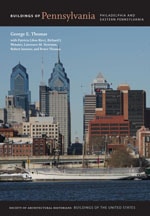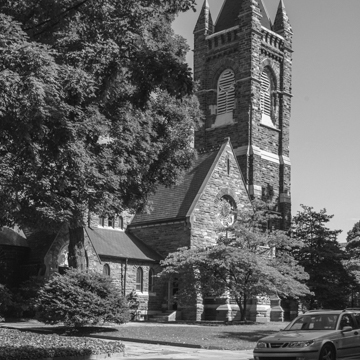Between the club ( PH179) and Willow Grove Avenue railroad station (1884–1885, W. Bleddyn Powell for the Pennsylvania Railroad) is another amenity of Houston's development, this local stone Victorian Gothic church. Its schist walls have darkened from their original silvery tone, making the contrasting lintels and red slate roof more assertive than originally anticipated. Restored in 2000 by Kise, Straw and Kolodner, its interior is once again dominated by the lusty red brick walls and rich woods that reflect the architectural polychromy of William Butterfield's London churches. The French detail and limestone trim of the baptistery and chancel are far more delicate and betray the hand of Theophilus Parsons Chandler in 1898 and 1900, respectively. Chandler also updated the earlier Houston family church, St. Peter's Episcopal Church at 6008 Wayne Avenue (abandoned 2008), which was designed by George Hewitt in 1873 when he was still partnered with Furness.
You are here
Protestant Episcopal Church of St. Martin-in-the-Fields
If SAH Archipedia has been useful to you, please consider supporting it.
SAH Archipedia tells the story of the United States through its buildings, landscapes, and cities. This freely available resource empowers the public with authoritative knowledge that deepens their understanding and appreciation of the built environment. But the Society of Architectural Historians, which created SAH Archipedia with University of Virginia Press, needs your support to maintain the high-caliber research, writing, photography, cartography, editing, design, and programming that make SAH Archipedia a trusted online resource available to all who value the history of place, heritage tourism, and learning.


